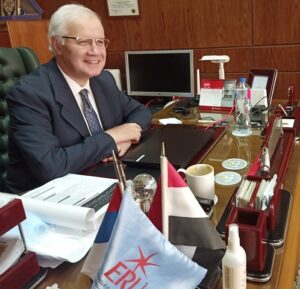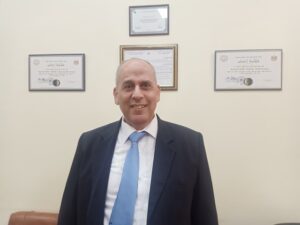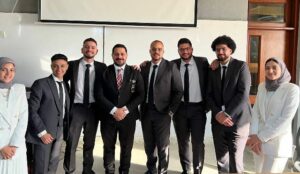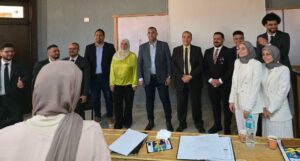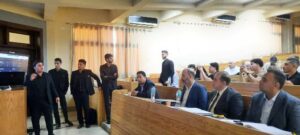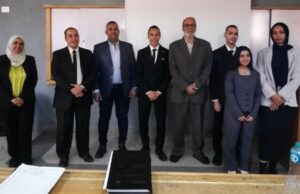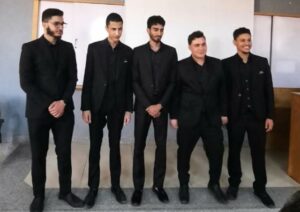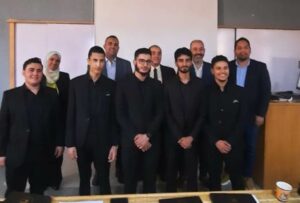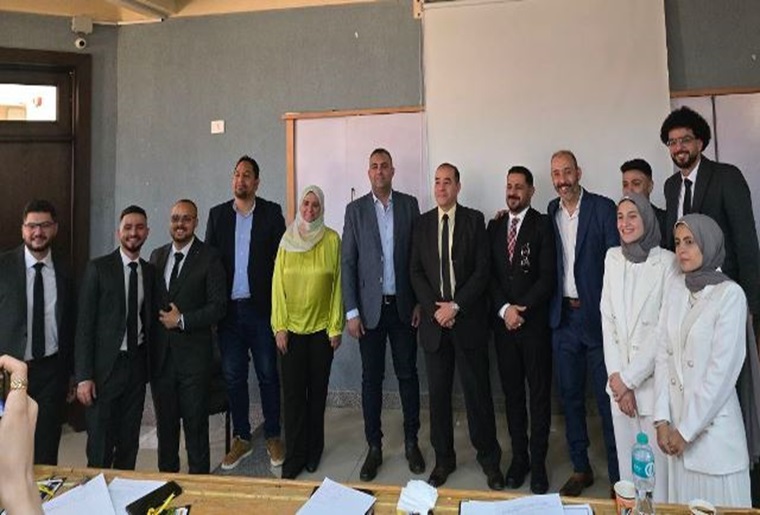Engineering Students of the Egyptian Russian University Excel in Telecommunications Projects
Dr. Sherif Fakhry Mohamed Abdelnaby, President of the Egyptian Russian University, announced that in line with efforts to enhance the educational process and provide students with unique experiences combining academic content with practical application, and to prepare them for the labor market, the “Telecommunications Engineering Department” at the Faculty of Engineering has discussed several graduation projects for final-year students for the academic year (2024-2025). The students excelled in implementing a number of innovative ideas and smart solutions using advanced technologies to solve societal problems. These projects contribute to sustainable development initiatives and address market needs in modern technologies in fields such as medicine, cybersecurity, and mobile networks, in alignment with “Egypt Vision 2023.” He noted that these student projects receive special attention and support from Dr. Mohamed Kamal El-Sayed Mostafa, Chairman of the University Board of Trustees.
Dr. Alaa Mohamed El-Batsh, Dean of the Faculty of Engineering at the Egyptian Russian University, explained that the graduation projects presented included a wide range of advanced technological ideas. The graduation projects in the “Telecommunications Department” were evaluated by committees consisting of academic professors from prestigious universities, industry experts from the Egyptian labor market, and faculty members. The aim was to ensure that students have acquired the necessary knowledge and skills and are now qualified for the local, regional, or international labor market.
The Dean of the Faculty pointed out that the first project, titled “ChroniConnect,” is an innovative smart system for monitoring chronic diseases using the Internet of Things (IoT). A distinguished student team developed it to monitor chronic diseases such as diabetes, hypertension, and heart diseases using IoT technologies and cloud platforms. The system relies on the patient wearing a smart bracelet that measures vital signs such as oxygen level, heart rate, non-invasive glucose levels, and fall detection. The patient data is then sent in real-time to doctors via a secure cloud platform. The device also provides instant alerts in case of dangerous readings or emergencies. This system offers an easy-to-use interface for doctors to monitor patients remotely, especially in rural and remote areas.
Dr. Alaa El-Batsh noted that the project team included students: Baha Hesham, Waleed Sabry, Karim Mohamed, Mohamed Yasser, Nasser Moamen, Ola Raafat, and Souheila Ahmed. The project represents a scientific achievement paving the way for the digital transformation of healthcare in Egypt and the Arab world. It was supervised by Dr. Mohamed Ahmed Maher, a lecturer in the Telecommunications Department.
Dr. Shaimaa Mostafa, Head of the Telecommunications Department at the Faculty of Engineering, stated that in the field of cybersecurity using artificial intelligence technologies and decoy attacks, a student team designed and implemented an advanced system for detecting cyber threats using Honeypot platforms and ethical hacking tools such as Kali Linux and Metasploit. Key features of the project include:
Analysis of cyberattacks via the integrated “T-Pot” platform, which includes more than 20 types of decoy systems to attract hackers and study their methods.
Simulation of real attacks such as “Slowloris” to test server resilience against low-speed attacks.
Use of ESP32 to build low-cost portable wireless hacking tools, such as Evil Twin and Deauthentication attacks.
Data analysis using Kibana and Elasticsearch to track hacker behavior patterns.
The Head of the Telecommunications Department emphasized that the project aims to enhance network security by understanding modern threats and developing intelligent defense mechanisms, contributing to the protection of institutions from cyberattacks. This achievement is a significant step toward strengthening digital security in Egypt and the Arab world. The student team included: Osama Mohamed, Tarek Yehia, Abdelrahman Mohamed, Osama Ali, and Fares Ayman. The project was supervised by Dr. Tamer Saleh, a lecturer in the Telecommunications Department.
Dr. Shaimaa Mostafa revealed that the third project was titled “Spectrum Sharing in 5G Smart Devices by Enhancing Spectrum Usage,” aiming to improve the utilization of frequency bands in 5G mobile networks. The project was supervised by Dr. Mohamed Mostafa, a lecturer in the Telecommunications Engineering Department, and the student team consisted of: Ahmed Ashraf, Ibrahim Adel, Hebatallah Abdelhalim, and Shorouk Sayed.
The Head of the Telecommunications Department noted that these projects received praise from the evaluation committee, who recommended participation in local and international competitions and seeking appropriate funding, as they represent important directions aligned with the state’s current efforts to achieve Egypt Vision 2030.
